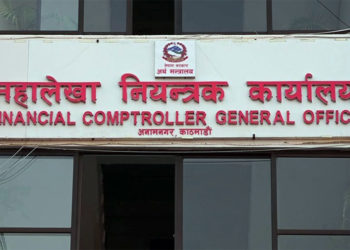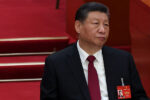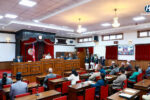KATHMANDU: Economic Digest offers a concise yet comprehensive overview of significant business happenings in Nepal, presented in easily digestible summaries.
The text highlights key economic developments in Nepal, from agriculture and small industries to financial transactions and technology.
The record-high egg prices in Nepal provide critical relief to poultry farmers struggling with financial losses, driven by factors like seasonal production dips and rising demand linked to tourism and educational activities.
This price adjustment aims to cover production costs, underscoring the delicate balance between market demand and supply.
Meanwhile, the government’s new policy to support micro, cottage, and small enterprises (MCSEs) seeks to bolster the local economy by fostering an entrepreneur-friendly environment, aiming to boost production and competitiveness.
Additionally, the upcoming First National Bamboo Conference in February 2025 shows Nepal’s growing interest in exploring sustainable industries, while the delayed QR code payment system for Nepali travelers in India highlights regulatory challenges in cross-border financial transactions, particularly concerning commission fees.
Together, these developments indicate Nepal’s efforts to stabilize and expand its economy, despite challenges in both traditional sectors like agriculture and emerging sectors like digital payments.
Egg prices hit record high in Nepal
Starting Saturday, poultry farmers in Nepal received the highest-ever prices for eggs, providing much-needed relief after months of financial struggles.
The farm price for large eggs now will be Rs 3,600 per box (7 crates), while medium-sized eggs will be priced at Rs 3,500. Retail prices for consumers will be Rs 22.50 per egg.
The Nepal Layers Poultry Farmers Association stated that this price increase will help farmers offset their production costs, which are estimated at Rs 16.56 per egg.
According to the association’s president, Binod Pokharel, several factors have contributed to the price hike, including reduced egg production in winter, a decrease in the number of egg-laying hens, increased tourism, and the reopening of schools and colleges, all of which have boosted demand.
Govt unveils policy to support MCSEs
Micro, cottage, and small enterprises (MCSEs) play a crucial role in the local economy by enhancing per capita income, generating employment, and offering income opportunities for the low- and middle-income population.
To strengthen their contribution to the national economy and improve their competitiveness, the government has introduced a new policy.
The policy was approved by the Cabinet on December 13. It aims to foster an entrepreneur-friendly environment that will stimulate production across the entire value chain of MCSEs.
First National Bamboo Conference-2081 to be held in February next year
Diktel Rupakot Majhuwagadhi Municipality has decided to organize the ‘First National Bamboo Conference-2081’ in February, 2025.
The province-level program has been planned to make the first National Bamboo Conference to be held at Matikore Playground in Diktel Bazar from February 27 to March 1 next year effective.
The conference will be focused on exploring the utility, feasibility, effectiveness and marketing of bamboo.
NEPSE ends the week with a 1.31% gain
The Nepal Stock Exchange (NEPSE) operated for four days this week, as Wednesday was a public holiday.
The NEPSE Index finished at 2,630.71, marking an increase of 33.89 points, or 1.31%. In comparison, last week the index closed at 2,596.82, reflecting a 3.19% decline from the previous week.
Throughout the week, the index reached a high of 2,645.20 and a low of 2,569, experiencing a volatility of 76.2 points.
QR code payment system for Nepalis in India delayed
The launch of a QR code payment system for Nepali travelers in India, initially planned for this December, is likely to be delayed due to a commission-related issue, according to an insider involved in the matter.
There is currently no regulation in place regarding commissions or fees that Nepali banks should receive for each transaction. In contrast, when Indian travelers make QR code payments in Nepal, merchants are charged a standard fee of 1.95 percent per transaction when payments are made through UPI-enabled apps.
(Prepared by Srija Khanal)









Comment